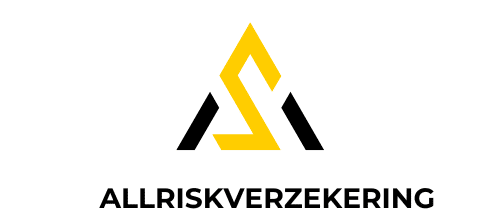The world of sports performance is constantly evolving, and running, in particular, has seen a significant shift due to technological advancements. As you, the everyday runners, ramp up your training for that next big race, the integration of data-driven tech is changing much more than just your pace. Specifically, the focus is on personalized hydration strategies for marathon runners to optimize performance and ensure safety.
The Importance of Hydration in Running Performance
Before diving into the role of technology, let’s first understand the crucial part hydration plays in a runner’s performance. Hydration is not just about drinking water. It’s a strategic process that includes the intake of fluids and electrolytes critical to the body’s function during physical exertion.
Additional reading : What’s the Best Approach to Monitoring Training Load in Elite Junior Swimmers?
Proper hydration during a race is fundamental for optimal performance. It provides the body with much-needed energy and helps control body temperature. It also plays a vital role in preventing injuries, as dehydration can lead to muscle cramps, fatigue, and heat-related illnesses.
According to a research study published on Pubmed, dehydration can adversely affect a runner’s performance, causing a decrease in speed and a drop in endurance levels. Similarly, overhydration – or hyponatremia – can be just as dangerous, leading to confusion, seizures, and in severe cases, even death.
Also to read : What’s the Effect of Plant-Based Diets on Strength and Recovery in Bodybuilding?
Personalized Hydration and Nutrition for Athletes
While hydration is essential for all athletes, the amount of intake can vary greatly from one individual to another. This is where personalized hydration strategies come in. These strategies take into account various factors such as the athlete’s body weight, sweat rate, race distance, and environmental conditions.
Alongside hydration, personalized nutrition also plays a big part in this process. As per a study indexed on Crossref, specific types of carbohydrates can help sustain energy levels during a race. This is where a runner’s nutrition plan comes into play. It provides a balanced intake of carbohydrates, proteins, and fats, helping to maintain energy levels and muscle function over the marathon distance.
Personalized hydration and nutrition strategies need to be backed by accurate data, and this is where technology lends a helping hand.
Role of Technology in Personalized Hydration Strategies
The role of technology in personalized hydration strategies for marathon runners is multi-dimensional. It includes various wearable devices, applications, and platforms that analyze real-time data, providing actionable insights to runners.
One of the most significant contributions of technology is in the form of wearable hydration monitors. These devices use sensors to measure sweat rate and composition, alerting runners when their electrolyte levels dip too low. This real-time data helps them adjust their hydration strategy on the spot, helping to maintain optimal performance and prevent dehydration.
Another prominent technology is the use of AI-powered applications. Companies like Google Scholar have created platforms that analyze a runner’s historical data, predicting their hydration needs for future races. The app can track weather conditions, the runner’s pace, and even the race route’s elevation to provide a detailed hydration plan.
The Future of Technology in Running
Technology is undeniably revolutionizing running and sports performance. The future promises even more remarkable advancements, with the potential to personalize hydration strategies to an unprecedented degree.
Imagine a future where your water bottle uses biometric data to mix the perfect blend of electrolytes and carbohydrates for your body’s specific needs in real-time. Or where smart clothing can analyze your sweat composition and adjust its microclimate to help you maintain the perfect body temperature during a race.
In terms of research, platforms like Google Scholar and Pubmed are becoming invaluable. They enable researchers to access a plethora of studies, contributing to our understanding of hydration, nutrition, and their intricate relationship with running performance.
In conclusion, whether you’re training for your first marathon or looking to shave off those extra minutes from your personal best, technology is making it easier to understand and manage your individual hydration needs. As we head into the future, these advancements will continue to transform how you, the everyday runner, approach your training, your races, and your overall running performance.
Technological Advancements in Personalized Hydration Strategies
One cannot emphasize enough the significant shift that technology has brought in the field of marathon running, specifically in personalized hydration strategies. With the introduction of data-driven tech, athletes are now able to tailor their hydration strategies to their unique needs.
Hydration monitors, a product of this tech revolution, have gained popularity among distance runners. These wearable devices, equipped with sensors, measure an individual’s sweat rate and composition in real-time. This data is then used to provide alerts when electrolyte levels go below the optimum, helping runners adjust their hydration strategy during the race.
Furthermore, AI-powered applications have also made a significant impact. Platforms such as Google Scholar have developed programs that analyze a marathon runner’s historical data, predicting their hydration needs for future races. The software can track variables like weather conditions, the runner’s pace, and even the race route’s elevation to provide a detailed hydration plan.
Another fascinating advancement is the use of biometric data in creating personalized sports nutrition plans. Based on factors such as body mass, body composition, muscle glycogen stores, and exercise intensity, these plans can help maintain energy levels and muscle function over the marathon distance.
These advancements, coupled with meticulous data analysis, are helping endurance athletes like marathon runners achieve their peak athletic performance.
Conclusion: The Impact of Technology on Running
As the technological revolution continues to evolve, its impact on sports, specifically marathon running, is undeniable. The use of data-driven tech in creating personalized hydration strategies is proving to be a game-changer.
With the advent of wearable hydration monitors and AI-powered applications, runners can now adjust their hydration and nutrition in real-time during the race. This not only optimizes their running speed and endurance but also ensures their safety by preventing conditions like dehydration and hyponatremia.
Imagine a future where your water bottle uses biometric data to mix the perfect blend of electrolytes and carbohydrates for your specific needs in real-time. Or where smart clothing can analyze your sweat composition and adjust its microclimate to help you maintain the perfect body temperature during a race.
Platforms like Google Scholar and Pubmed are becoming invaluable tools for researchers in the field of sports med. They provide access to a plethora of free articles, further enhancing our understanding of hydration, nutrition, and their impact on running performance.
In summary, whether you’re an amateur training for your first marathon or a professional athlete looking to break records, technology is transforming the way you approach hydration and nutrition. As we move forward, these advancements will continue to revolutionize the sports industry, providing athletes with unprecedented personalization and optimization in their training and competition strategies.
















